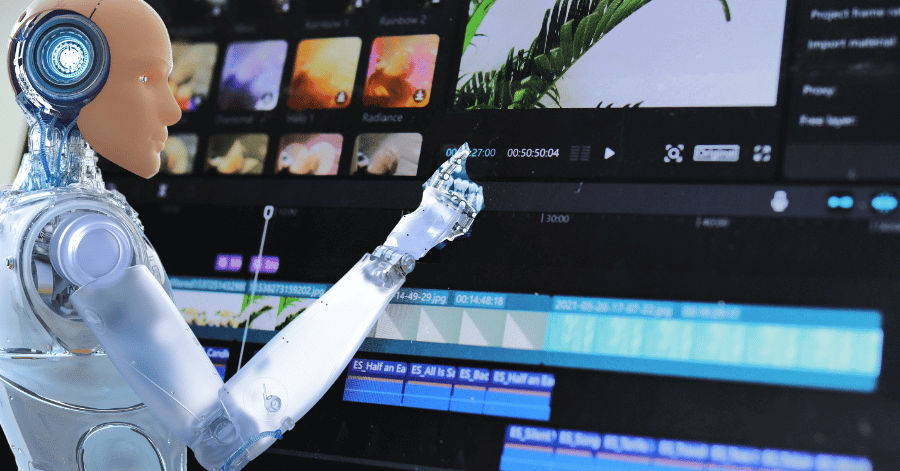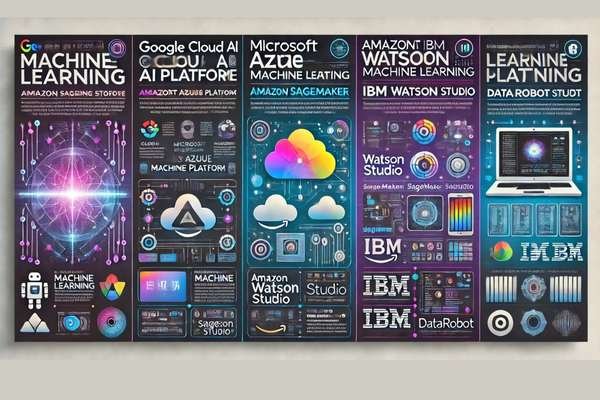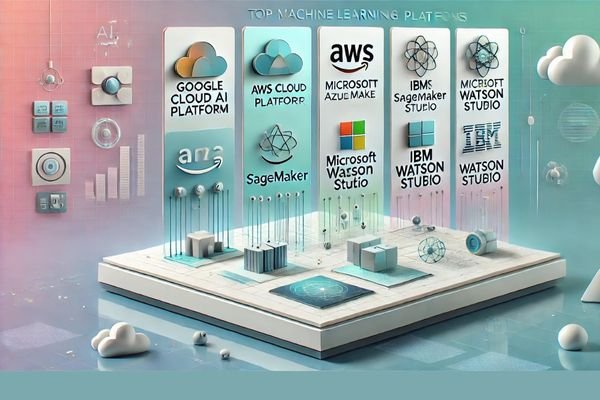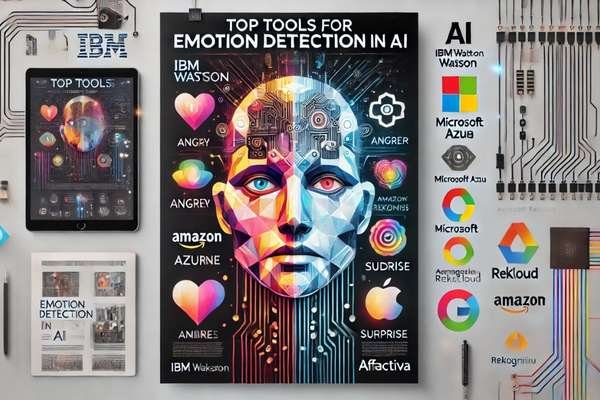
How to Use Artificial Intelligence to Create Stunning Visuals for Your Brand
September 14, 2024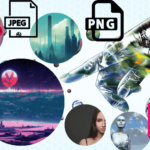
AI Image Generation: Tools for Designers and Marketers
September 16, 2024The Future of Video Creation with AI: Opportunities and Challenges Ahead
The future of video creation is being revolutionized by (AI) artificial intelligence . With cutting-edge tools, professionals in digital marketing, development, and content creation are witnessing a new era of production that is faster, more efficient, and highly personalized. In this article, we will explore the immense opportunities AI offers to video creators, along with the challenges that lie ahead in integrating these technologies effectively. Let’s dive into how AI is shaping the future of video creation, the potential it holds, and the hurdles professionals must overcome.
Table of Contents
1. How artificial intelligence might help to simplify video production?
Video making is no exception; artificial intelligence has made its name automating difficult tasks. Making a high-quality video historically required a lot of manual work; jobs in scripting, filming, editing, and post-production all took time. AI is quickly automating and streamlining these processes, allowing content creators to work faster and more effectively. Tools like Synthesia and Pictory, for instance, allow script-to-video conversion, saving time and money.
Content Created by AI
It is very groundbreaking how realistically artificial intelligence can create from written scripts. For example, Runway lets artists create scenes with just word descriptions. Without a large team or extensive technical knowledge, these AI-driven systems use natural language processing (NLP) to transform ideas into visual storytelling.
Today, marketers can create product explainer videos in minutes, thanks to AI-driven templates. This not only reduces the costs associated with traditional production teams but also shortens the time to market.
2. Scale Personalization
One of AI’s most significant impacts on video production is its ability to create highly personalized content. AI tools can analyze audience data and generate custom videos based on personal preferences. For digital marketers, this level of personalization enhances audience engagement, making it an essential tool.
Dynamic Content Production
AI can modify visuals, voiceovers, and calls to action (CTAs) in real-time based on a viewer’s location, past behavior, or demographics. This dynamic content creation leads to higher conversion rates, as audiences resonate more deeply with the material.
For example, Netflix’s recommendation algorithm, powered by AI, suggests personalized content based on viewing history. The future of video production is undoubtedly heading toward platforms where AI creates videos tailored to individual interests.
3. Advanced Editing Methodologies and Artificial Intelligence
Beyond automating video creation, AI is introducing innovative methods to enhance post-production quality. Tools like Adobe Sensei and Magisto help creators fine-tune their edits quickly. Content creators use AI to automate routine tasks such as color correction, cropping, and selecting appropriate music that fits the video’s tone.
AI in Motion Tracking and Visual Effects
AI is advancing motion tracking, allowing designers to seamlessly integrate augmented reality (AR) elements, animations, or special effects without needing in-depth programming knowledge. This provides creative professionals with new ways to experiment with storytelling.
4. Ethics and Artificial Intelligence in Video Production
As AI takes center stage in video production, concerns about deepfakes and content authenticity are arising. In sensitive fields such as politics or business, AI-generated videos can potentially mislead or spread misinformation.
The Negative Side of Deepfakes
Deepfake technology allows AI to create incredibly realistic videos by altering existing footage, often without consent. While these can be entertaining in some instances, they pose serious risks to media credibility and content authenticity.
For example, a deepfake video of a political figure went viral in 2020, spreading false information and raising concerns about media responsibility. To address these issues, developers are working on AI solutions that can detect and flag altered content. However, this remains an ongoing challenge.
5. Democratizing Video Creation: Accessibility
AI-powered tools are democratizing content creation, enabling a broader audience to produce videos. Historically, high-quality video production was only possible for those with professional-grade equipment and technical expertise. Now, AI systems with user-friendly interfaces allow anyone with a smartphone to create impressive videos.
Affordable, High-Impact Content
By automating complex tasks, AI video tools help small businesses and freelance creators produce polished content without the need for expensive software or large teams. This is leveling the playing field, especially for new creators.
Just as PHP made web development accessible to non-programmers, AI video tools are enabling non-experts to create professional-quality content.
6. Challenges of Applying Artificial Intelligence to Video Production
Although AI has transformative potential, significant challenges must still be addressed. These range from the steep learning curve of some AI technologies to the high initial costs of implementing advanced AI-driven platforms, which can be barriers to widespread adoption.
Adapting to Existing Processes
For professionals already familiar with traditional video production tools, integrating AI can feel daunting. There’s often a learning curve as designers must familiarize themselves with new AI-powered platforms. Additionally, aligning AI tools with existing workflows can disrupt production processes.
Legal and Ethical Considerations
As AI becomes more entrenched in video production, intellectual property and data privacy are likely to become major concerns. Key issues for the future of video production include determining ownership of AI-generated content and ensuring ethical use of user data.
The Future of Video Creation with AI: Opportunities and Challenges Ahead Recap
| Tool/Platform | Features | Best For | Pricing | Website |
|---|---|---|---|---|
| Synthesia | AI avatar videos, script-to-video automation | Marketing videos, Tutorials | Starts at $30/month | Visit Synthesia |
| Pictory | Text-to-video conversion, video summarization | Social media content, E-learning | Free trial, then $19/month | Visit Pictory |
| Adobe Sensei | Advanced editing, motion tracking, color correction | Professional video editing | Included in Adobe Creative Cloud | Visit Adobe Sensei |
| Lumen5 | AI video creation from blog content | Marketing teams, Freelancers | Starts at $29/month | Visit Lumen5 |
| Runway | AI-powered scene generation, editing | Creative projects, Film production | Custom pricing | Visit Runway |
Frequently Asked Questions
1. How can artificial intelligence simplify video production?
AI simplifies video creation by automating time-consuming tasks such as scripting, editing, and adding effects. This saves both time and money compared to traditional video production methods, allowing creators to focus more on strategy and innovation.
2. Are AI-generated videos replacing human creativity?
While AI can assist in content creation and automate certain tasks, it cannot replace human creativity. AI tools are best used as complements—they enable creators to realize their ideas more efficiently, but creative input is still required to craft compelling narratives.
3. Is AI video creation affordable for small businesses?
Yes, AI video tools such as Lumen5 and InVideo offer affordable solutions for small businesses. Often subscription-based, these tools provide access to advanced features without the need for costly equipment or software.
4. What ethical concerns arise with AI in video production?
Key ethical concerns include potential intellectual property infringement, the use of AI to create deepfake videos, and the impact on job loss in the creative industry. Addressing these concerns requires responsible use and continuous monitoring of AI technologies.
In Summary
Artificial intelligence is undoubtedly revolutionizing the landscape of video production. For professionals in digital marketing, development, and content creation, AI offers significant opportunities for faster production, personalized content, and increased accessibility. However, these advancements also bring challenges, particularly in terms of ethics and the integration of AI into established workflows. By carefully navigating these issues, creators can harness AI’s power to shape a future where video production is more inclusive and dynamic than ever before.





